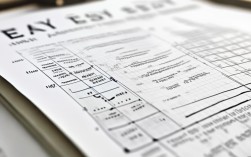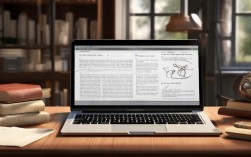Mastering the Art of Writing a Personal Budget Essay in English
Writing about personal budgets in English serves as excellent practice for both language learners and finance enthusiasts. This type of essay helps improve vocabulary, sentence structure, and logical organization while discussing practical financial management. Whether preparing for an English exam or simply enhancing writing skills, understanding how to craft a compelling personal budget essay is valuable.

Why Writing About Personal Budgets Improves English Skills
A well-structured personal budget essay requires clear expression, precise vocabulary, and coherent reasoning—essential elements in English writing. Here’s how this topic enhances language proficiency:
- Vocabulary Expansion – Financial terms like "expenses," "savings," "income," and "investments" become familiar through repeated use.
- Grammar Practice – Using future tense ("I will allocate $200 for groceries") or conditional sentences ("If I save more, I can travel") reinforces correct grammar.
- Logical Flow – Budgeting requires step-by-step explanations, improving paragraph transitions and coherence.
- Persuasive Writing – Convincing the reader of a budget’s effectiveness sharpens argumentation skills.
Key Elements of a Strong Personal Budget Essay
Clear Introduction
Begin with a hook—perhaps a surprising statistic ("60% of Americans don’t track monthly spending") or a personal anecdote ("Last year, I realized I was overspending on dining out"). Then, state the essay’s purpose: to explain personal budgeting strategies and their benefits.
Well-Structured Body Paragraphs
Each paragraph should focus on one budgeting aspect:
- Income Sources – Describe salary, freelance work, or passive income.
- Fixed vs. Variable Expenses – Differentiate necessities (rent, utilities) from discretionary spending (entertainment, dining).
- Savings & Investments – Explain emergency funds, retirement accounts, or stock market contributions.
- Budgeting Tools – Mention apps (Mint, YNAB) or methods (50/30/20 rule).
Practical Examples
Instead of vague statements, use specific numbers:
"I allocate 30% of my $3,000 monthly income to rent, 20% to savings, and 15% to groceries."
This precision makes the essay more credible and engaging.
Smooth Transitions
Connect ideas naturally:
- "After covering essential expenses, the next step is planning for savings."
- "While fixed costs remain stable, variable expenses require careful monitoring."
Strong Conclusion
Reinforce the budget’s importance without repeating the introduction. End with a forward-looking statement:
"By sticking to this budget, I aim to save $10,000 within a year for future investments."
Common Mistakes to Avoid
- Overgeneralizing – Avoid statements like "Everyone should save money" without explanation.
- Ignoring Grammar – Misusing tenses ("I spend $500 last month" instead of "I spent") weakens credibility.
- Lack of Personalization – A budget essay should reflect individual habits, not generic advice.
Enhancing English Writing Through Budget Essays
Writing about personal finance strengthens analytical and linguistic abilities simultaneously. Here’s how to maximize learning:
- Read Financial Articles – Pick English publications (Forbes, The Economist) to absorb formal vocabulary.
- Practice Regularly – Write weekly budget updates to reinforce language patterns.
- Seek Feedback – Use tools like Grammarly or ask a tutor to review sentence structure.
Final Thoughts
A personal budget essay is more than a financial exercise—it’s a powerful tool for refining English writing. By focusing on clarity, specificity, and logical flow, writers can produce compelling essays that demonstrate both financial literacy and language mastery. Whether for academic purposes or self-improvement, mastering this skill opens doors to better communication and smarter money management.











